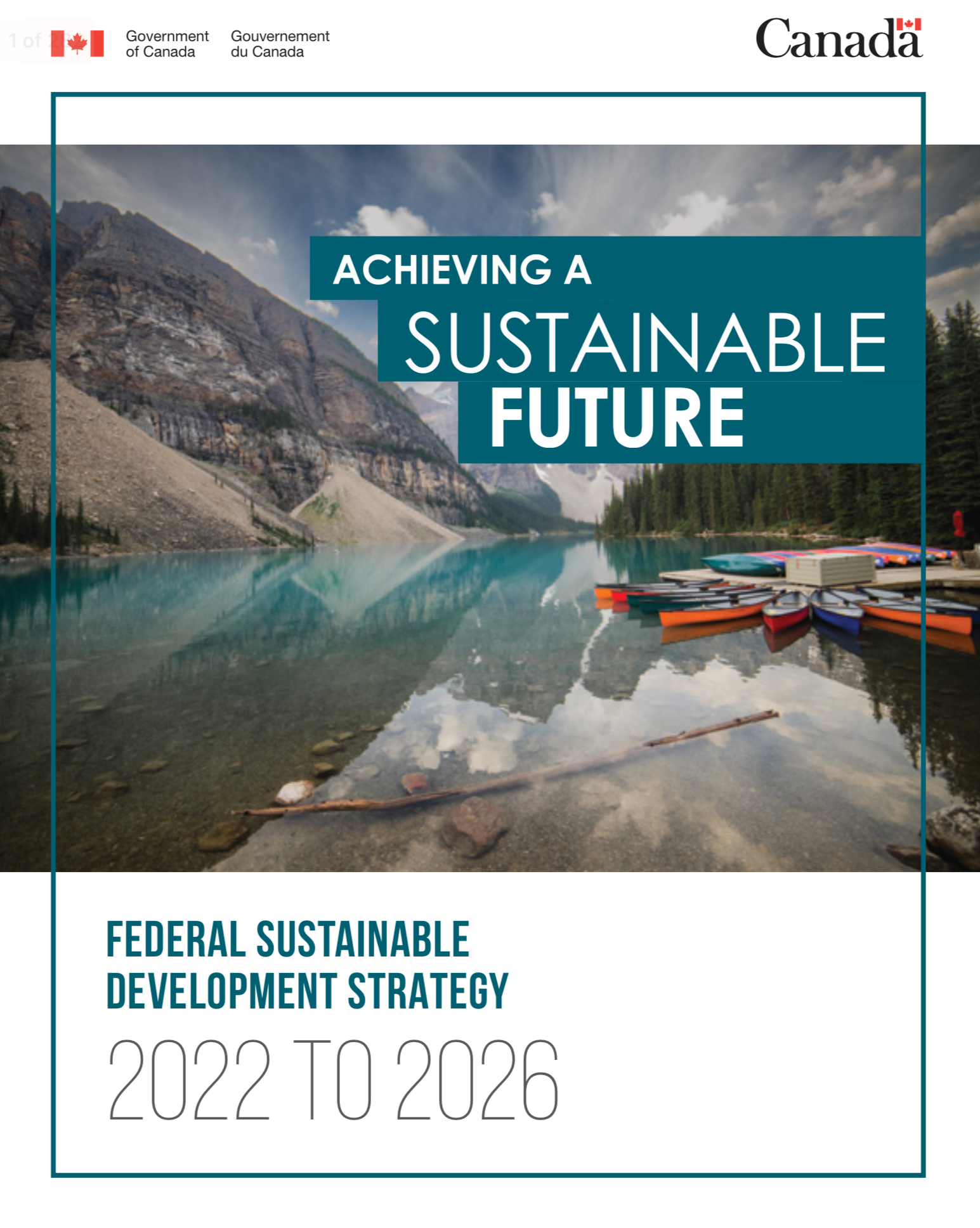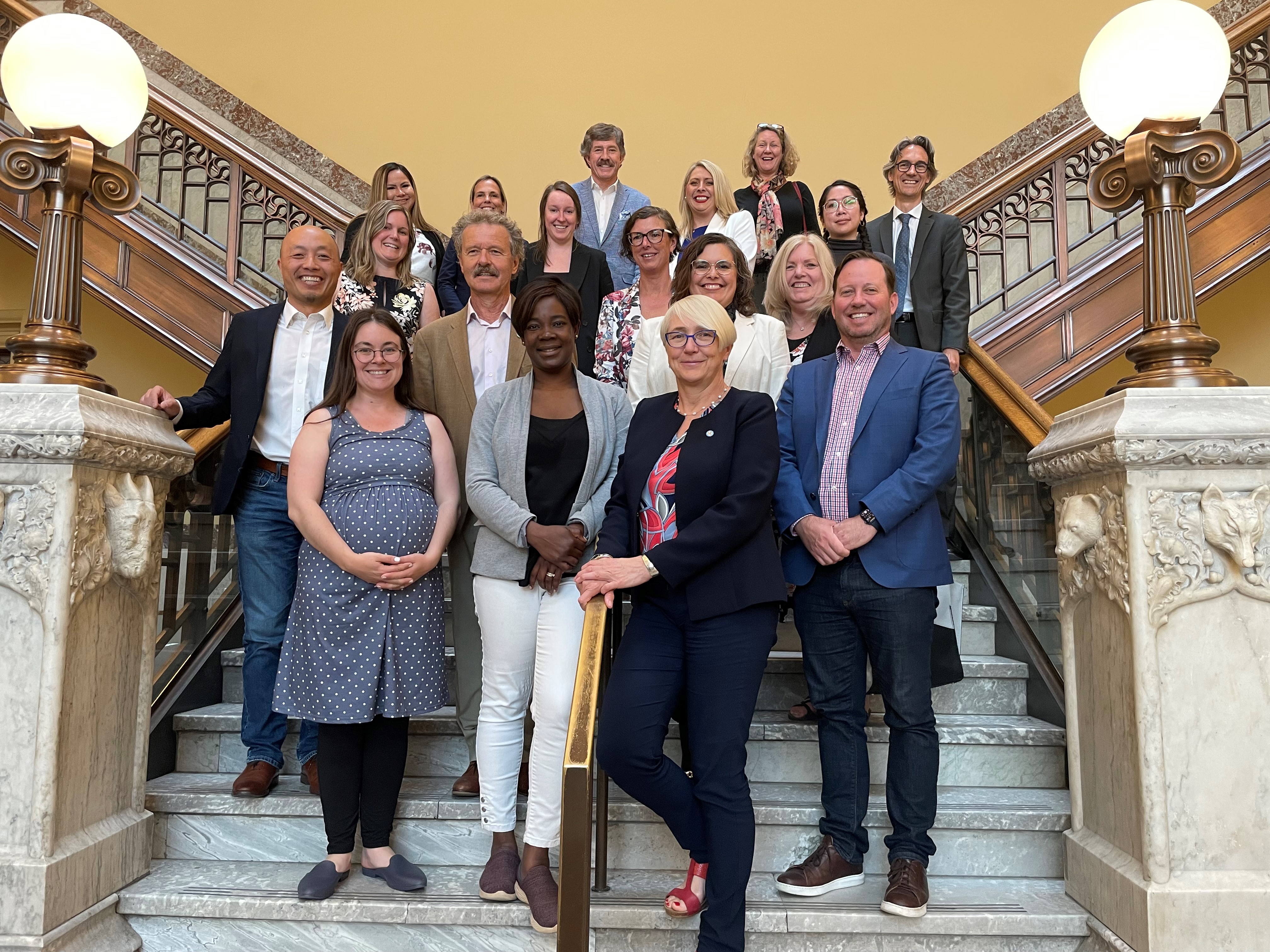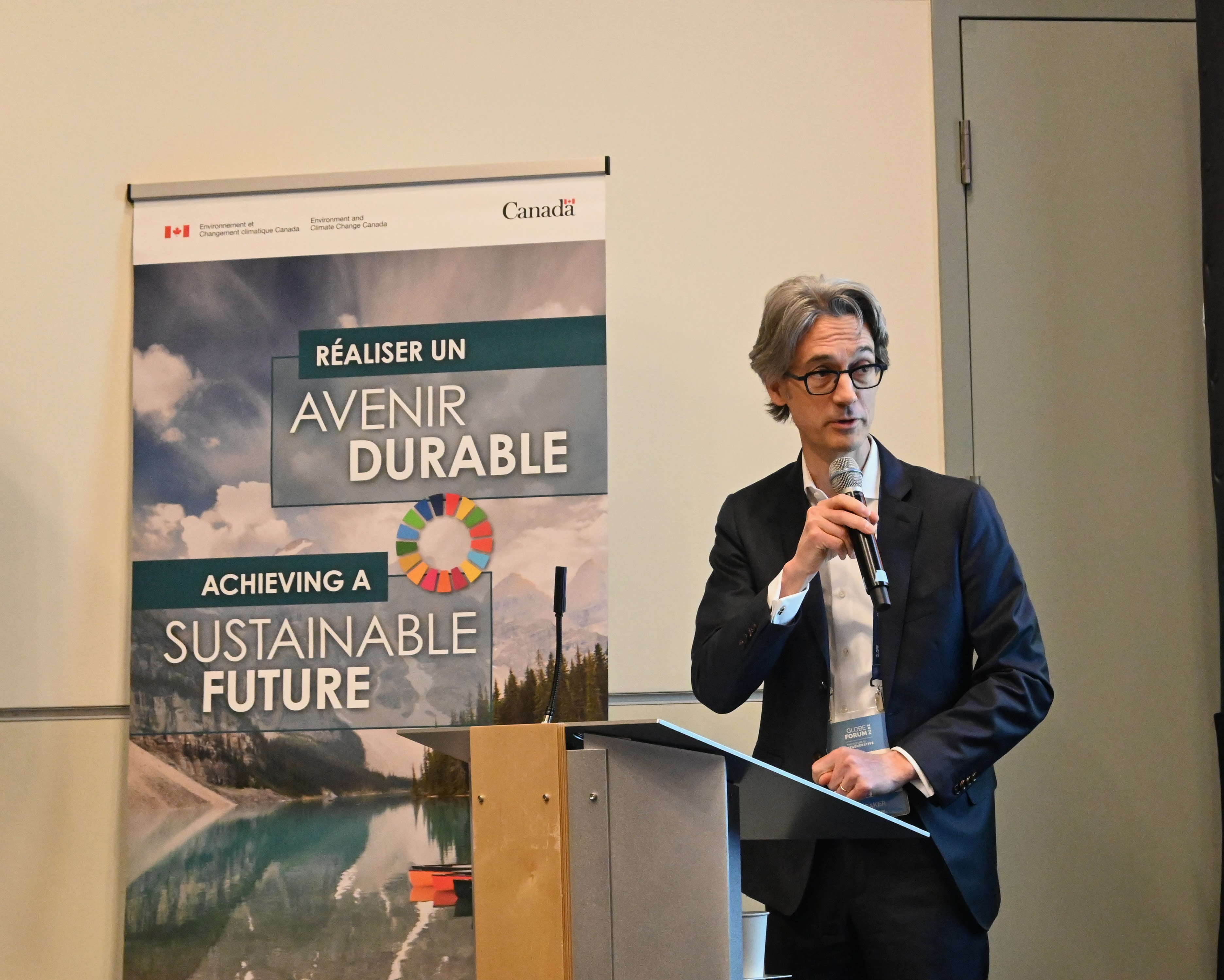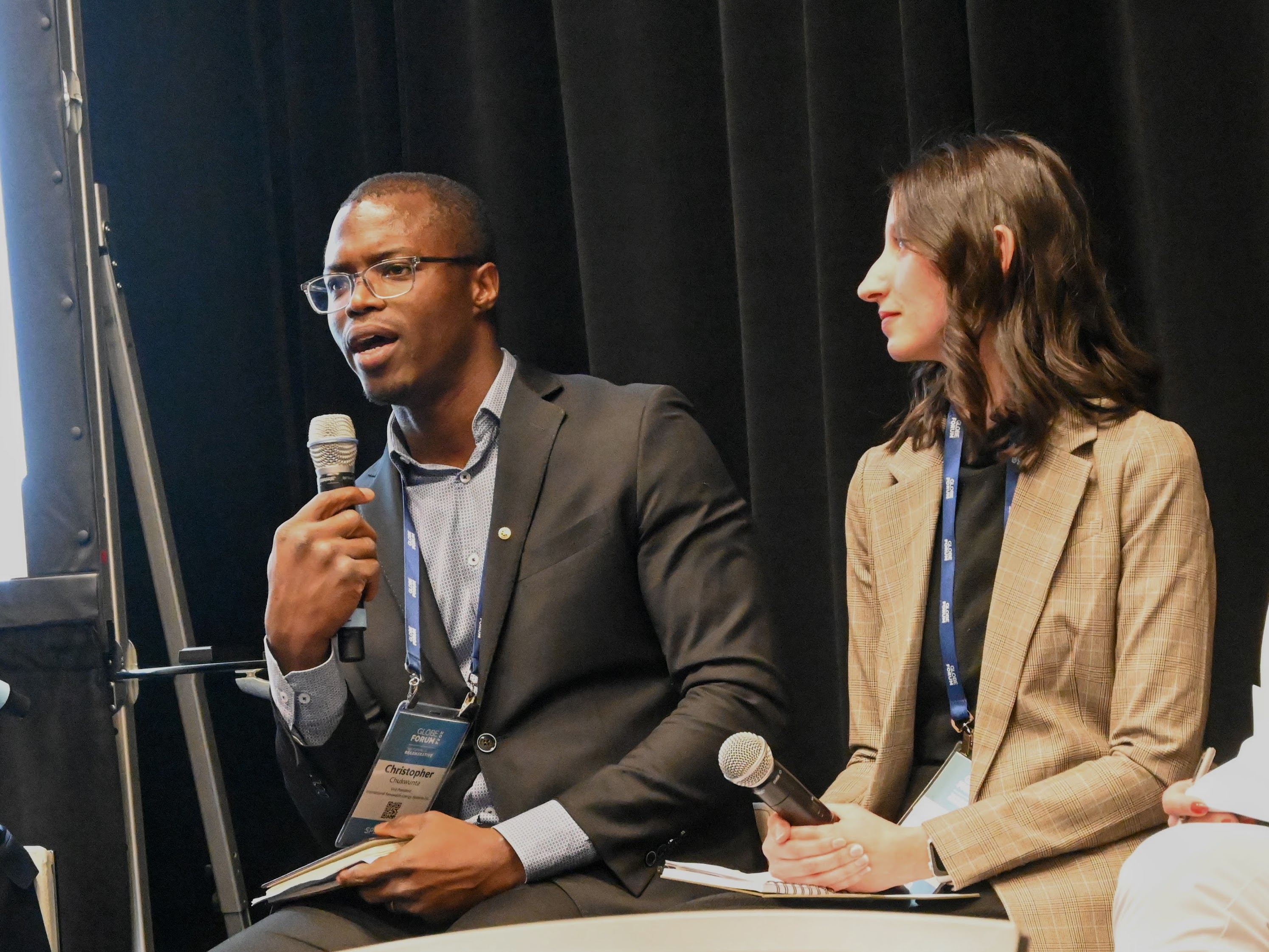Canada’s Federal Sustainable Development Strategy, now in 3D
Projects Sponsor
Expectations are growing for governments and businesses to integrate and measure their impact on sustainability outcomes in a holistic and transparent way. The Government of Canada is required by law – the Federal Sustainable Development Act – to develop a Federal Sustainable Development Strategy (FSDS) every three years and to measure progress against specific, measurable and time-bound targets.

Changes to the Act in 2020 expanded its scope to consider the integrated nature of sustainable development and each of the social, economic and environmental dimensions. The resulting 2022-2026 FSDS is Canada’s fifth. Built on the foundation of the 17 Sustainable Development Goals (SDGs) laid out in the United Nations 2030 Agenda for Sustainable Development, the Strategy sets out the Government of Canada’s goals, targets and implementation strategies with a new whole-of-government approach. This approach increased the number of involved organizations from the previous Strategy’s 27 to 100, a big step for Environment and Climate Change Canada’s Sustainable Development Office, now tasked with onboarding new organizations and including new targets and strategies beyond the environment.
Undaunted, the team conducted extensive research and consultation on best practices in sustainability reporting and the expectations of Canadians. This helped the team identify the highest priority sustainability outcomes for Canada and effectively mobilize federal departments and agencies. They then established working groups with partners for each of the goals and led a major national consultation over four months, receiving hundreds of submissions.

Canadians engaged constructively, sharing their thoughts on how the concept of sustainable development should evolve. The result is a major evolution in the Strategy’s approach – for the first time, it incorporates goals and targets that are purely social and economic, such as poverty reduction and reconciliation, informed by stakeholder perspectives, including critical guidance and input from Indigenous Nations. When all was said and done, 700 individuals and organizations were engaged, including stakeholders across the country, other levels of government, Indigenous governments and organizations (including five National Indigenous Organizations), environmental non-governmental organizations, academics, businesses and youth organizations.
Any whole-of-government strategy of this nature must follow a very specific path to be tabled in Parliament including consultation requirements of the Federal Sustainable Development Act (FSDA).

After initial research was completed, extensive consultation was undertaken with 100 federal organizations in 2021 in order to develop a new draft strategy. The document was reviewed by senior officials and considered by Ministers before its release for public consultation in March 2022.
A wide range of stakeholders, including the Minister’s Sustainable Development Advisory Council, shared their views on the FSDS during the 120-day consultation. These generated extensive changes to the structure and content and led to a broader, more balanced lens on 17 SDGs to include social, economic, and environmental dimensions. A revised draft was brought to federal organizations for consultation in June-July 2022 before its approval by Ministers for parliamentary tabling in November 2022.
In November 2023, 100 federal organizations tabled – many for the first time – their Departmental Sustainable Development Strategies, identifying actions in support of the FSDS. The 17 goals and 50 targets are now being actively implemented across the federal government with the aim of securing a more sustainable future for Canada.

The work to implement these strategies is ongoing and progress on the strategy’s targets will be formally reported to Parliament in 2025, but the strategy is already informing Canadians of pressing sustainability issues and federal priorities, including achieving net-zero greenhouse gas emissions; conserving nature and biodiversity for future generations; advancing reconciliation with First Nations, Inuit and Métis communities; promoting gender equality; and supporting innovation and economic growth.
Few targets will be achieved by the federal government alone – so many actors are engaged on targets touching homelessness and housing needs, poverty reduction, access to mental health services, and affordable childcare— and even now the strategy inspires and mobilizes Canadians to take action. In conception and design the underlying ethos of the Federal Sustainable Development Strategy is the one that drives the shift to sustainability everywhere; and that is, quite simply, we are all in this together.













